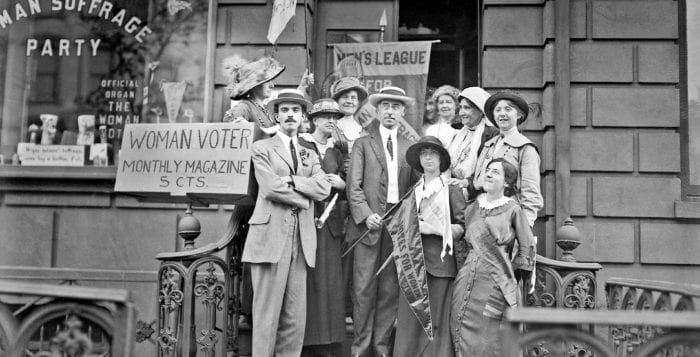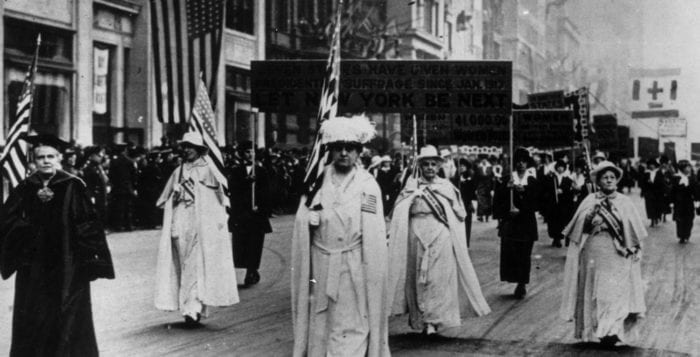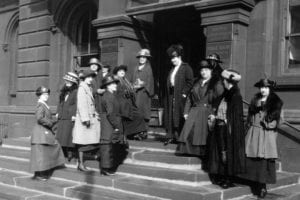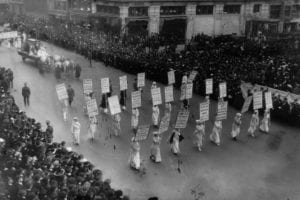By Lisa Scott
The new year brought the optimism of lengthening days, even as the undeniable effects of climate change frighten and yet drive the desire to “do something.”
Nationally, January brought the commemoration of Martin Luther King Jr. stopping us to think about his legacy, inspiring yet so unfulfilled more than 50 years after his death. The legions of civil rights workers, volunteers, freedom riders, protesters and women and men of all faiths, colors and origins knew that past and present wrongs could be exposed through demonstrations and civil disobedience, and then made right by law.
And 100 years ago, after many decades of struggle, women finally won the right to vote in the 19th Amendment to the U.S. Constitution. Yet the United States was born out of compromise and states’ rights, leading to today’s patterns, in many states, of voter suppression eroding the democracy we had strengthened for nearly 250 years.
Yes, all women and men 18 and over have the constitutional right to vote. But in practice many eligible individuals don’t register, or don’t exercise their right to vote, or have that right taken away if they’ve been convicted of felonies, or are arbitrarily removed for the voting rolls, or they are gerrymandered to limit the value of their vote, etc.
Yet voting this year, 2020, is critical; for president, for all members of the House of Representatives, and for one-third of senators. In a polarized and cacophonous political climate, what can be done to ensure a fully participatory democracy?
Meet Lisa M. La Corte, a resident of Riverhead township, who wanted to honor King as an icon for civil rights and voter engagement, and honor the suffragists and all people who risked and gave all for the right to vote in a free election. The League of Women Voters learned about someone who was riding the Patchogue-Riverhead Suffolk bus in the afternoons in January, getting passengers to register to vote. We invited her to a recent board meeting, and heard her story.
La Corte boarded the bus at the beginning of its weekday route, introduced herself to the driver, and when everyone had boarded she stood at the front and made a public announcement, introducing herself. She said she was there to help register voters and hear riders’ concerns of poor transportation for underserved communities as well as other issues. She stressed the importance of the passengers’ having their voices heard through the vote. She then walked from the front to the back asking each person individually if they were registered and if not (but eligible) she would register them then and there.
Most passengers are shy or skeptical but La Corte perseveres. When speaking with riders who do not want to register, she reminds them that “what they want for you to not do is vote” and reminds them by staying out of the democratic process elected officials can ignore or minimize their needs and concerns. Their voices are not heard and their community exerts no pressure for change.
The challenge for someone working with communities of color, in her view, is that black and brown people have no trust in any level of government or the process in general because they have been left behind so many times. Poor people feel that they don’t count no matter what they do, resulting in a sense of hopelessness. Our fractured communities are separated by a chasm of real-life experiences; why should they participate in a system that ignores or mistreats them? Why is authority not being held accountable? Why are black and brown people incarcerated on a hugely disproportionate basis, breaking up families and communities?
La Corte engages with all riders, whether or not they register to vote. She listens to their stories and challenges and hopes to build trust and commitment to the vote. As she said to the league, “I would love a movement that would transcend what I could ever imagine. I am but one person with ideas that hopes to inspire others. Like James Baldwin said, ‘Not everything that is faced can be changed, but nothing can be changed until its faced’.”
What are you doing to ensure access to the vote for all our fellow citizens, educate them on the issues, and reestablish trust in our civic institutions and government?
Lisa Scott is president of the League of Women Voters of Suffolk County, a nonprofit, nonpartisan organization that encourages the informed and active participation of citizens in government and influences public policy through education and advocacy. For more information, visit www.lwv-suffolkcounty.org or call 631-862-6860.








